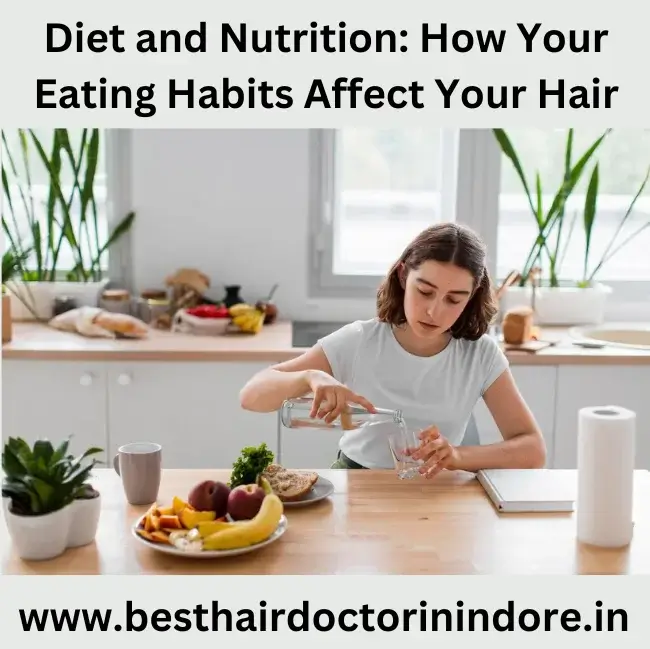We’ve all heard the saying, “You are what you eat,” and it couldn’t be more accurate when it comes to the health of your hair. While genetics and other factors play a role in hair health, your diet and nutrition are fundamental in maintaining luscious locks. Best Hair loss treatment in Indore we’ll explore the intricate connection between your eating habits and the health and appearance of your hair.
Table of Contents
ToggleThe Building Blocks of Healthy Hair
Before we delve into how diet affects your hair, it’s essential to understand what your hair is made of. Hair is primarily composed of a protein called keratin, and it grows from hair follicles located in the skin. A balanced diet provides the necessary nutrients for keratin production, hair growth, and overall hair health.
Protein Power
Proteins are the building blocks of hair, and without an adequate supply of protein in your diet, your hair may become weak, brittle, and prone to breakage. Incorporate lean sources of protein like poultry, fish, eggs, and legumes into your meals to support hair growth and strength.
Vitamins and Minerals for Hair Health
Vitamin A: This vitamin is essential for the production of sebum, a natural hair conditioner. Sources of vitamin A include sweet potatoes, carrots, and spinach.
Vitamin C: It helps in the production of collagen, a protein that supports hair structure. Citrus fruits, strawberries, and bell peppers are rich in vitamin C.
Vitamin E: Known for its antioxidant properties, vitamin E helps improve blood circulation in the scalp, promoting hair growth. Include nuts, seeds, and leafy greens in your diet for a vitamin E boost.
Biotin (Vitamin B7): Biotin is often associated with hair health, as it plays a role in keratin production. Foods like eggs, nuts, and avocados are biotin-rich.
Iron: Iron deficiency can lead to hair loss, so make sure to consume iron-rich foods like red meat, lentils, and dark leafy greens.
Zinc: Zinc is vital for hair tissue growth and repair. Incorporate foods like oysters, nuts, and whole grains into your diet for sufficient zinc intake.
Omega-3 Fatty Acids: These healthy fats found in fatty fish, flaxseeds, and walnuts can help keep your scalp and hair hydrated and reduce inflammation.
Avoiding Hair Saboteurs
While it’s crucial to consume hair-nourishing foods, it’s equally important to limit or avoid items that can harm your hair:
Sugar: Excessive sugar consumption can lead to inflammation, which may contribute to hair loss.
Processed Foods: These often contain unhealthy fats, preservatives, and additives that can negatively affect your hair.
Alcohol: Overindulgence in alcohol can lead to nutrient deficiencies and dehydration, both of which can harm your hair.
Caffeine: While moderate caffeine consumption is generally fine, excessive caffeine intake can lead to dehydration, which can affect your hair’s health.
Conclusion
Incorporating a balanced and nutritious diet into your lifestyle is not only beneficial for your overall health but also plays a significant role in maintaining strong, vibrant hair. Remember that hair health is a long-term commitment, and changes in diet may take some time to show noticeable results. If you’re experiencing severe hair issues, it’s advisable to consult a Best Hair loss treatment in Indore to address underlying causes and receive personalized guidance.
Your hair is a reflection of your overall well-being, so nourish it from the inside out with a diet rich in essential nutrients and make your locks shine with vitality.


